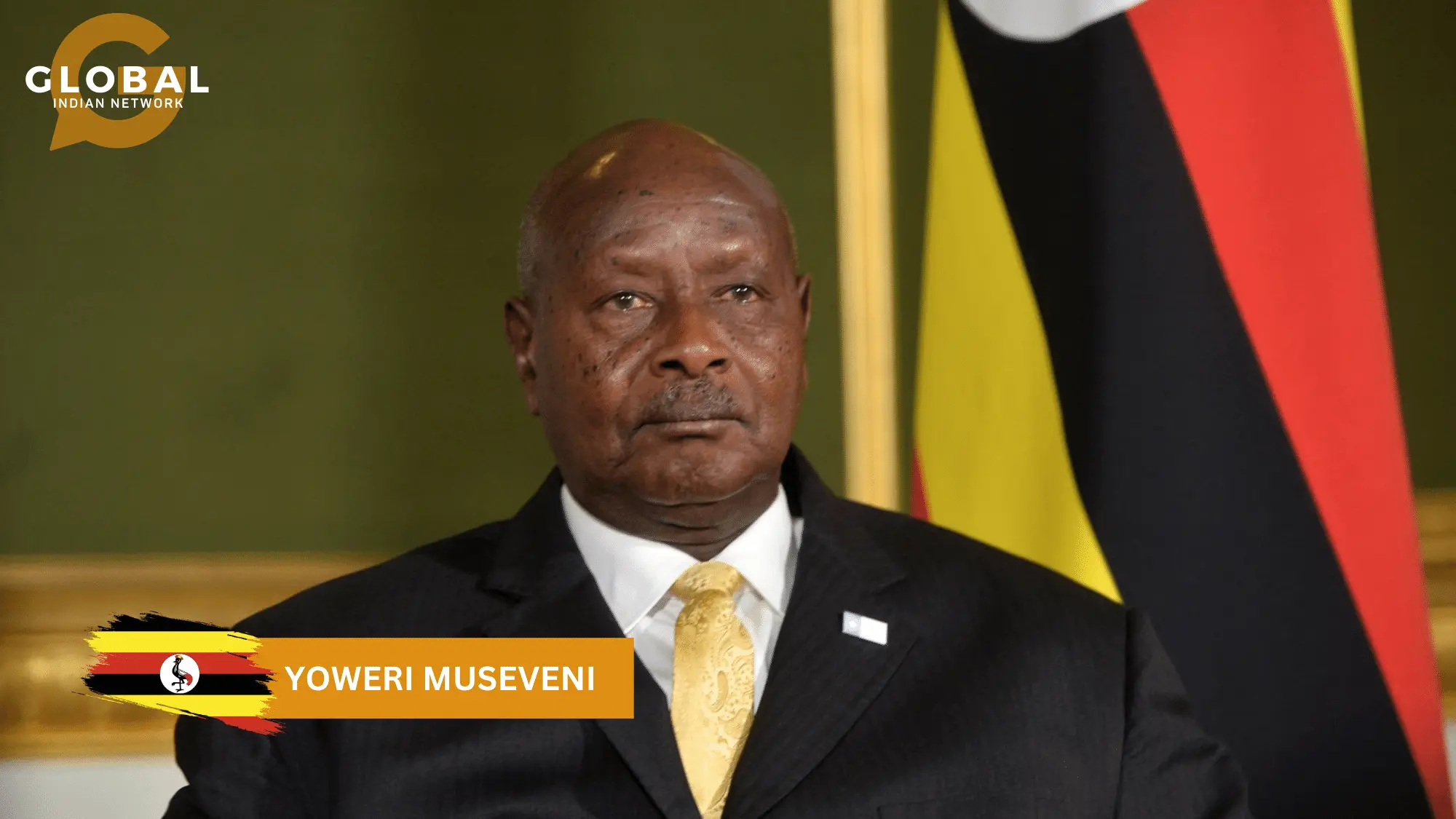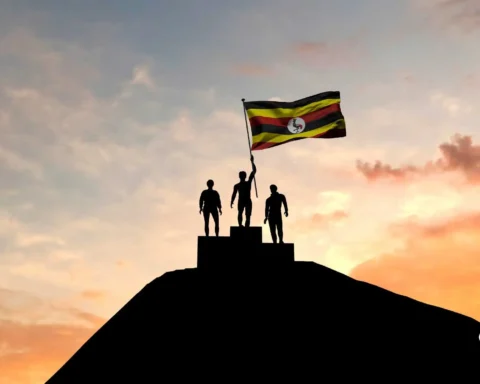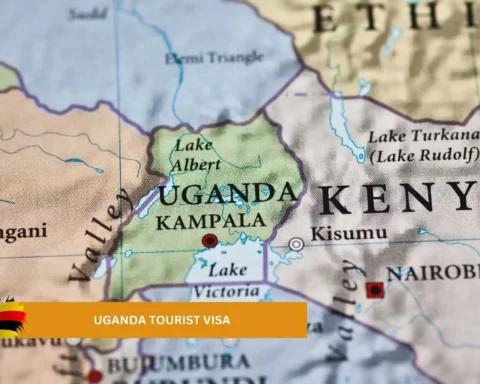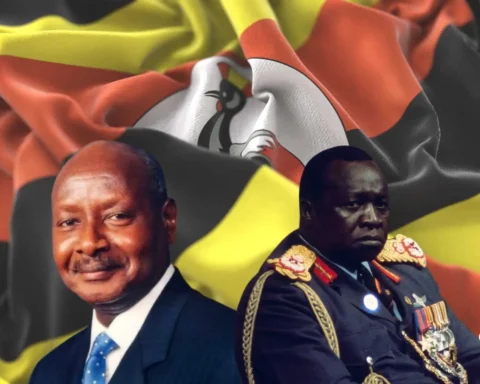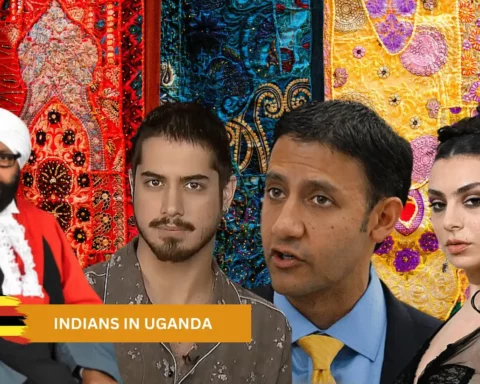As a leader, Yoweri Museveni has seen both triumphs and controversies, making him a figure of great significance on the African continent. From his early years to his rise to power and the complexities of his presidency, we will explore the multifaceted journey of a man who has shaped the political landscape of Uganda for decades. In this blog, we will delve into the life, biography, facts, and politics of one of Africa’s most enduring and influential leaders: Yoweri Museveni. Join us as we unravel the story of Yoweri Museveni, his leadership, and his impact on Uganda and beyond.
Table of Contents
Early Life of Yoweri Museveni
Yoweri Kaguta Museveni was born into a modest family on August 15, 1944, in Ntungamo, southwestern Uganda. His parents, Amos Kaguta and Esteri Kokundeka, were of the Banyankole ethnic group. Museveni’s upbringing was in a rural setting, where he was exposed to hard work and community values. His father, a cattle herder, instilled in him a deep appreciation for traditional customs and values.
Museveni attended primary schools in his home region. He pursued his secondary education at Ntare School in Mbarara. He studied at the University of Dar es Salaam in Tanzania. Later, he graduated with a bachelor’s degree in economics and political science in 1970. His education laid the foundation for his future political career, and it was during his time at the university he became politically active and began to shape his revolutionary ideologies. Museveni’s early life and education played a crucial role in shaping his character and political trajectory, eventually leading him to become one of Uganda’s most prominent leaders.
Biography and Regime of Yoweri Museveni
Yoweri Kaguta Museveni’s political career can be traced back to his early involvement in student activism during his university years in Tanzania. He embraced Marxist-Leninist ideologies and began organising fellow Ugandan students during this time. His political awakening and passion for change led him to form the Mozambique African National Union (MANU) and later the Uganda Patriotic Movement (UPM), two organisations dedicated to opposing the government of President Milton Obote.
However, Yoweri Kaguta Museveni’s most significant entry into the political scene came through armed struggle. In 1981, he founded the National Resistance Army (NRA), a rebel group, to oppose the previous regime, which launched a five-year guerrilla war against the government of President Obote. This conflict of the Ugandan troops, known as the Ugandan Bush War, was characterised by brutal fighting and human rights abuses on both sides.
Under Museveni’s leadership of military officers, the NRA eventually succeeded in overthrowing President Obote’s government in January 1986. Museveni then assumed the presidency and embarked on a mission to bring stability and positive changes to Uganda. Some fundamental changes and achievements during his early years in power included:
- Stability and Security: Museveni’s leadership initially ended the political turmoil and violence that had plagued Uganda for years. His government focused on restoring law and order, which helped to stabilise the country.
- Economic Reforms: Museveni implemented economic policies to liberalise the economy, encourage private investment, and reduce state control over industries. These reforms contributed to economic growth and attracted foreign aid and investment.
- Education and Healthcare: Efforts were made to improve the education and healthcare sectors, including expanding access to education and increasing vaccination coverage. This led to notable improvements in health and education indicators.
- Aid and Foreign Relations: Museveni secured significant foreign aid and maintained stable relations with Western countries, which played a crucial role in Uganda’s economic development.
However, it’s important to note that Museveni’s presidency has also faced criticism and controversy. While he has been praised for some of his achievements, including reducing HIV/AIDS prevalence and fostering economic growth, his prolonged rule has been marked by allegations of human rights abuses, electoral irregularities, and a decline in political pluralism. Additionally, Uganda has experienced conflicts in the northern region, such as the Lord’s Resistance Army insurgency, which Museveni’s government struggled to resolve.
Profile
Yoweri Museveni is a prominent Ugandan political leader who has held the presidency of Uganda since January 29, 1986, making him one of Africa’s longest-serving heads of state. He hails from a modest background and is of the Banyankole ethnic group. Museveni’s early involvement in student activism and his revolutionary ideologies led to the founding of the National Resistance Army (NRA), a rebel group that played a pivotal role in overthrowing the oppressive regimes of Milton Obote and Tito Okello.
Museveni’s presidency initially brought stability to Uganda, and his government implemented economic reforms, improved access to education and healthcare, and attracted foreign aid and investment. However, his extended rule has drawn criticism for alleged human rights abuses, electoral irregularities, and a decline in political pluralism. Despite the challenges and controversies, Museveni’s leadership has impacted Ugandan territory and landscape. It continues to shape the nation’s trajectory.
Opposition to Idi Amin and Obote
Yoweri Museveni and Idi Amin had a complex and adversarial relationship in Ugandan politics. Idi Amin ruled Uganda from 1971 to 1979 and is widely remembered for his brutal and oppressive regime. Museveni, during Amin’s rule, was not in power and was, in fact, one of the many Ugandans who suffered under Amin’s regime.
Museveni opposed Idi Amin’s monstrous regime government, which he considered tyrannical and responsible for human rights abuses and economic mismanagement. He went into exile during Amin’s rule and organized opposition forces from outside Uganda. Museveni was actively involved in efforts to overthrow Amin and participated in various armed resistance movements against his regime.
The overthrow of Idi Amin in 1979, achieved by a coalition of Ugandan exiles and Tanzanian forces, paved the way for a period of political instability in Uganda. After Amin’s departure, various groups vied for power, leading to changes in leadership, term limits, and conflicts. This period ultimately set the stage for Yoweri Museveni’s rise to power.
Museveni’s National Resistance Army (NRA) emerged as a significant force during this period, and in 1986, he successfully took control of the country, ending the years of instability that followed Amin’s rule. Museveni’s leadership, which followed Amin’s regime, was characterized by efforts to rebuild Uganda, restore stability, and implement political and economic reforms. However, it has also faced criticism and controversy during his long tenure as President.
Milton Obote was a prominent Ugandan political figure who served as the President of Uganda in two separate terms, from 1966 to 1971 and from 1980 to 1985. He was the head of the Uganda People’s Congress (UPC) political party and played a significant role in the country’s post-independence politics.
Milton Obote and Yoweri Museveni had a complex political relationship. In the early 1980s, Obote returned to power through the 1980 general elections, which were marked by allegations of electoral fraud. Museveni, who had previously been involved in opposition politics, contested the legitimacy of the election results and accused Obote’s government of rigging the polls.
Yusufu Lule
Yusufu Lule was a Ugandan political figure who briefly served as the President of Uganda. He held office for just 68 days in 1979, making his presidency one of the shortest in the country’s history.
Yusufu Lule assumed the presidency in April 1979 following the overthrow of President Idi Amin’s regime. His presidency was marked by efforts to restore stability and establish a transitional government. However, his tenure was marred by political infighting and power struggles within the Uganda National Liberation Front (UNLF) coalition, which led to his removal from office in June 1979.
Lule’s brief presidency is part of Uganda’s complex political history during transition and turmoil. After his removal, the presidency changed hands multiple times before Yoweri Museveni eventually took power in 1986, bringing stability to the country.
Ugandan Bush War and Deaths
The Ugandan Bush War, also known as the Luwero War, was a protracted armed conflict that raged from 1981 to 1986, culminating in the rise to power of Yoweri Museveni and his National Resistance Army (NRA). The war had its roots in longstanding political and ethnic tensions within Uganda.
His NRA, with its political wing, the National Resistance Movement (NRM), composed primarily of marginalised ethnic groups and inspired by Marxist-Leninist ideology, sought to overthrow the oppressive regimes of President Milton Obote and his successor, Tito Okello. Various estimates suggest that tens of thousands lost their lives due to the conflict.
The war was characterised by guerrilla tactics, with the NRA operating from rural areas and mounting hit-and-run attacks on government forces. The conflict was brutal, marked by widespread atrocities, human rights abuses, and displacement of civilians. International actors, including neighbouring Tanzania, supported the NRA’s efforts to oust the existing regimes.
In January 1986, his forces captured the Ugandan capital, Kampala, marking the end of the war and the beginning of his presidency. The Ugandan Bush War profoundly impacted the nation, leading to a new era of leadership, political changes, and the quest for stability and development in Uganda.
His Role in the Nairobi Agreement
Yoweri Museveni played a significant role in the Nairobi Agreement, primarily as a mediator and facilitator of the peace process. His involvement stemmed from Uganda’s proximity to Sudan and its interest in ending the Second Sudanese Civil War, which directly impacted Uganda’s security and stability.
He used his influence and diplomatic skills to bring the warring parties, the Sudanese government, and the Sudan People’s Liberation Movement/Army (SPLM/A) to the negotiating table. He actively engaged in shuttle diplomacy, working closely with other regional leaders and international mediators to bridge gaps between the conflicting parties.
His government also provided logistical and military support to the SPLM/A, which was fighting against the Sudanese government forces. This support was instrumental in pressuring the Sudanese government to come to the negotiating table.
His role in the Nairobi Agreement was that of a mediator and facilitator, leveraging Uganda’s strategic interests and influence to help broker a peace deal that ultimately contributed to ending the long-standing conflict in Sudan.
Facts
- Guerilla Warfare Expertise: Before becoming a political leader, he gained significant experience in guerrilla warfare. His success in leading the National Resistance Army (NRA) to victory against two Ugandan regimes gave him a reputation as a skilled military strategist.
- Cattle Keeper: He is known for his love of cattle. He has often used cattle metaphors in his political speeches and even wrote a book titled “Sowing the Mustard Seed,” in which he compares his political journey to tending cattle.
- Versatile Linguist: He is fluent in several languages, including English, Swahili, and several local Ugandan languages. This linguistic versatility has helped him connect with a wide range of Ugandan citizens.
- Promotion of African Unity: Museveni has advocated for African unity and has played a role in regional politics, including his involvement in peacekeeping efforts in neighbouring countries like Sudan and the Democratic Republic of Congo.
- Conservationist: Museveni has shown a strong commitment to wildlife conservation. Uganda’s Bwindi Impenetrable National Park is famous for its mountain gorillas, and Museveni has supported efforts to protect these endangered species.
- Married to Janet Museveni: Yoweri Museveni’s wife, Janet Museveni, is also a prominent Ugandan political figure. She has held various ministerial positions in his government, including that of First Lady and Minister of Education and Sports.
- Constitutional Amendment: Museveni, the President of Uganda, had faced several constitutional amendments related to presidential term limits. One notable constitutional change occurred in 2005 when Uganda’s Parliament removed presidential term limits, allowing Museveni to run for re-election beyond the previously stipulated two-term limit. This move was controversial and led to concerns about the consolidation of power.
These unique facts offer a glimpse into the multifaceted personality of Yoweri Museveni and shed light on his diverse interests and experiences throughout his political career.
Elections
Yoweri Museveni’s elections have been a significant aspect of his political career and have often been a source of acclaim and controversy. Here’s an overview of his presidential elections:
- 1986: Museveni initially assumed power in 1986 without a formal election. His ascent followed the overthrow of President Tito Okello by the National Resistance Army (NRA). Museveni declared himself president after taking control of the country.
- 1996: Museveni’s first formal presidential election took place in 1996, following the promulgation of a new constitution in 1995. Museveni, the National Resistance Movement (NRM) candidate, won this election, marking the beginning of his democratic rule. However, the election was marred by allegations of irregularities and limited political competition.
- 2001: Museveni secured his second term in the 2001 presidential election. This election was notable for the participation of multiple opposition candidates. However, Museveni still emerged victorious amidst accusations of unfairness and electoral manipulation.
- 2006: In the 2006 election, Museveni faced a strong challenge from Kizza Besigye, a former ally who had become a prominent opposition figure. Museveni was chosen as the presidential candidate, but allegations of electoral fraud and violence marked this contest.
- 2011: Museveni won a fourth term in the 2011 election. Once again, the election was criticized for irregularities and a lack of a level playing field, particularly concerning media access and campaign finance.
- 2016: Museveni secured his fifth term in the 2016 election. Like its predecessors, this election was marked by controversy, including accusations of voter intimidation and manipulation of the electoral process.
- 2021: The 2021 election was a particularly contentious one. Museveni faced strong opposition, notably from runner-up Bobi Wine, a famous musician turned politician. Museveni emerged victorious, but international observers criticized the election for its lack of transparency and allegations of violence and human rights abuses.
Conclusion
The enigmatic figure of Yoweri Museveni casts a long shadow over the political landscape of Uganda. His journey from the shadows of rebellion to the corridors of power has been a tale shrouded in intrigue and ambiguity. As we close this chapter, we can’t help but wonder about the mysteries that still linger in the wake of his presidency.
Behind the diplomatic façade and the public image lies a web of secrets and unanswered questions. What truly motivates Museveni? What hidden forces have shaped his decisions? As we peel back the layers of his political career, we are left with more questions than answers, for the enigma of Yoweri Museveni remains one of Africa’s greatest mysteries.
FAQs
When did Queen Elizabeth visit Uganda?
Queen Elizabeth II visited Uganda on two occasions during her reign. Her first visit was in 1954, and her second visit occurred in 2007 during the Commonwealth Heads of Government Meeting (CHOGM).
How many districts are there in Uganda?
Uganda was divided into 135 districts.
Who was the first president of Uganda?
The first President of Uganda was Sir Edward Mutesa II, who served from 1963 to 1966. He was initially the ceremonial President under a parliamentary system but later clashed with Prime Minister Milton Obote, leading to a political crisis and his removal from office.
What is the main religion in Uganda?
The main religion in Uganda is Christianity, with a significant majority of the population identifying as either Roman Catholic or Protestant. Islam is also practised by a substantial minority of Ugandans, particularly in some areas of the country.




